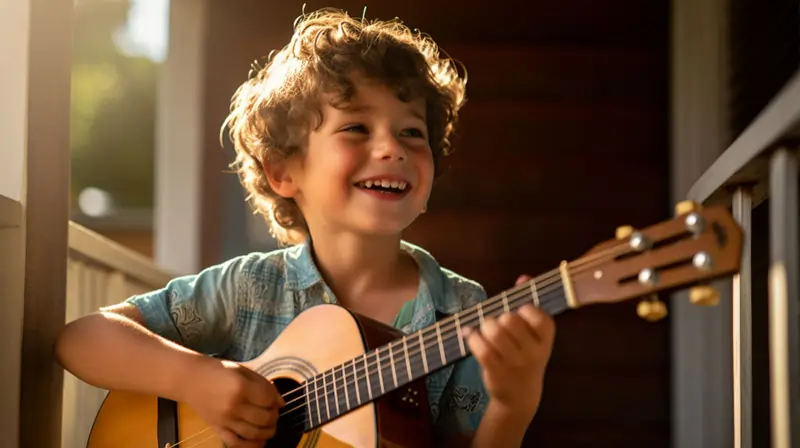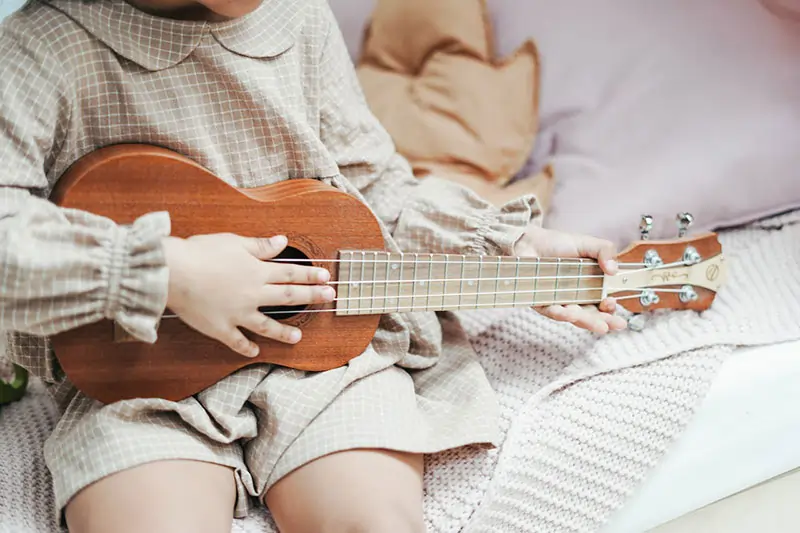Harmonious Beginnings: The Impact of Early Musical Education on Children

In the symphony of childhood development, the role of early musical education plays a profound and lasting note. From fostering cognitive benefits to nurturing emotional intelligence, the impact of harmonious beginnings cannot be overstated. This article delves into the multifaceted advantages of introducing children to the world of music at an early age. For parents seeking to enhance their child’s musical journey, discover playful learning with My Happy Helpers kids musical instruments—a delightful way to introduce young minds to the magic of music.
I. Overview of Early Musical Education
The foundation of early musical education lies in introducing children to the enchanting world of melodies and rhythms. It goes beyond the joy of creating music and extends to influencing various aspects of a child’s development.
Importance of Childhood Development
Research consistently highlights the critical role of early childhood experiences in shaping a person’s future. Music, with its inherent ability to engage and stimulate, emerges as a powerful catalyst in this formative journey.
II. The Cognitive Benefits
A. Improved Academic Performance
Studies suggest a strong correlation between musical education and enhanced academic performance. The cognitive skills developed through learning music often translate into improved results in other subjects.
B. Enhancing Memory and Attention Span
The intricate nature of musical training requires children to focus and memorize patterns, contributing to the development of robust memory and sustained attention.
C. Boosting Creativity
Musical education encourages children to explore their creative side. Whether composing their tunes or interpreting existing pieces, it becomes a canvas for imaginative expression.
III. Emotional Development

A. Fostering Emotional Expression
Music becomes a language for children to express emotions that might be challenging to convey verbally. It acts as a therapeutic outlet for emotional expression.
B. Building Confidence and Self-Esteem
Mastering an instrument or performing in front of an audience fosters a sense of accomplishment, contributing significantly to a child’s confidence and self-esteem.
C. Cultivating Discipline and Patience
Learning an instrument requires discipline and patience. These qualities developed early in life have a ripple effect on a child’s overall character.
IV. Social Skills
A. Teamwork and Collaboration
Group musical activities teach children the value of collaboration, providing essential skills for navigating social relationships.
B. Communication Skills
Musical education involves not just playing instruments but also listening actively. This enhances a child’s ability to communicate effectively.
C. Developing a Sense of Belonging
Participation in music groups creates a sense of belonging and community, enriching a child’s social experiences.
V. Physical Coordination
A. Fine and Gross Motor Skills Development
Playing musical instruments, especially those involving intricate finger movements, contributes to the development of fine motor skills. Activities like dancing to music enhance gross motor skills.
B. Connection Between Music and Physical Movement
The rhythm of music often inspires physical movement, linking the auditory and motor regions of the brain, promoting overall coordination.
VI. Choosing the Right Instrument
A. Assessing the Child’s Interest and Temperament
Understanding a child’s preferences and temperament is crucial in selecting the right instrument. It ensures a harmonious match between the child and the musical medium.
B. Consulting with Music Educators
Expert guidance from music educators can help parents make informed decisions about the most suitable instrument for their child.
VII. Incorporating Technology in Musical Education
A. Digital Tools for Learning
Advancements in technology offer interactive and engaging tools for teaching music, making the learning process enjoyable for children.
B. Interactive Apps and Online Resources
Various apps and online platforms provide supplementary resources, making musical education accessible beyond traditional methods.
VIII. Creating a Musical Environment at Home
A. Importance of a Supportive Atmosphere
A home environment that embraces music creates a conducive space for a child’s musical journey. Supportive parents play a pivotal role in nurturing this atmosphere.
B. Encouraging Family Involvement
Involving the entire family in musical activities strengthens familial bonds and encourages a shared appreciation for music.
IX. Overcoming Challenges
A. Dealing with Time Constraints
Parents often face time constraints in today’s fast-paced world. Strategies for integrating musical education into busy schedules are explored.
B. Addressing Financial Considerations
Budget constraints should not be a hindrance to musical education. Affordable options and community resources are discussed.
X. The Role of Schools and Communities
A. Advocating for Music Programs in Schools
The importance of integrating music into school curricula is discussed, emphasizing the need for advocacy at both local and national levels.
B. Community Initiatives Supporting Musical Education
Communities play a vital role in supporting musical education. Initiatives that promote access to music for all children are highlighted.
XI. Addressing Common Misconceptions
A. Dispelling Myths About Musical Education
Common misconceptions are addressed, ensuring that parents have accurate information when considering musical education for their children.
B. Clarifying Realistic Expectations
Setting realistic expectations for the outcomes of musical education helps parents make informed decisions.
XII. The Long-Term Impact
A. How Early Musical Education Shapes Future Endeavors
An exploration of how the skills acquired through early musical education contribute to success in various fields later in life.
B. Lifelong Appreciation for Music
The enduring love for music cultivated in childhood paves the way for a lifelong appreciation and engagement with the arts.
XIII. Conclusion
A. Summarizing the Holistic Impact of Early Musical Education
Bringing together the various facets discussed, the conclusion emphasizes the holistic impact of early musical education on a child’s overall development.
B. Encouragement for Parents to Embrace Musical Education for Their Children
A final call to action for parents to recognize and embrace the benefits of early musical education, fostering a love for music in their children.

